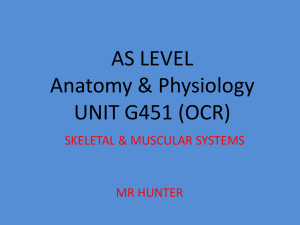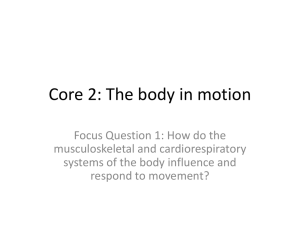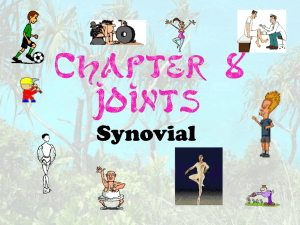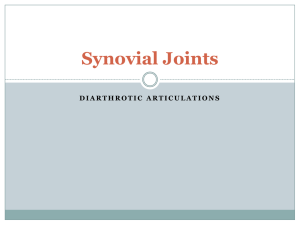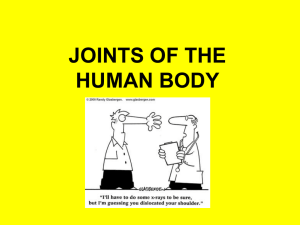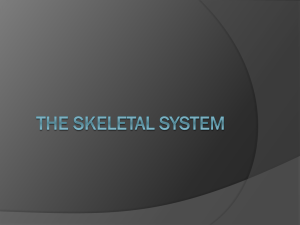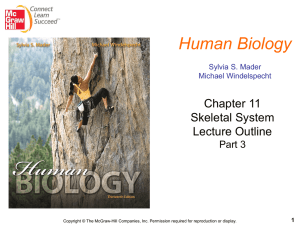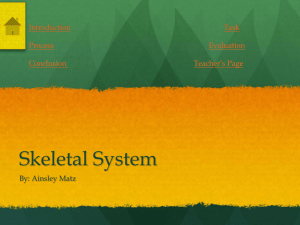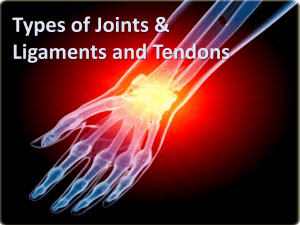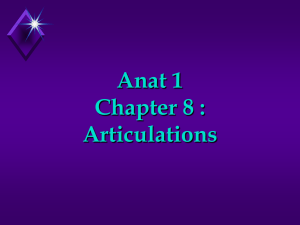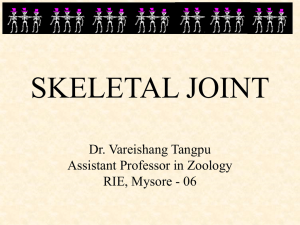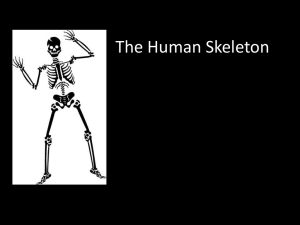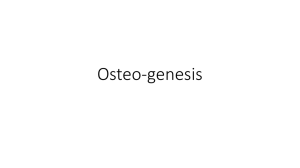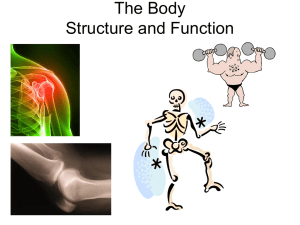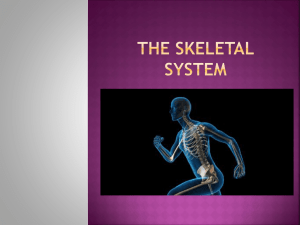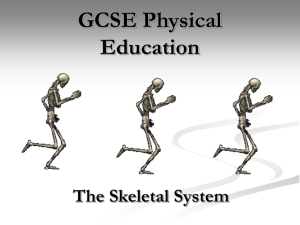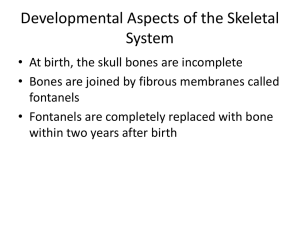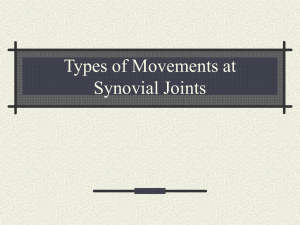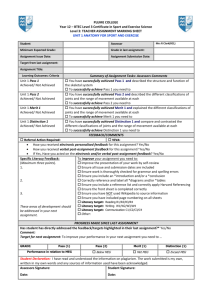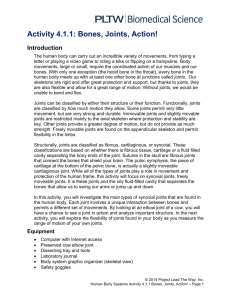Skeletal System
advertisement
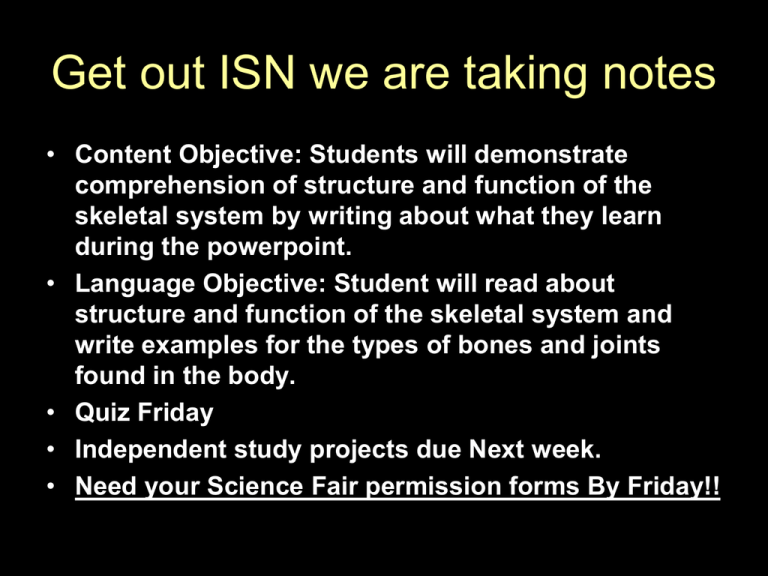
Get out ISN we are taking notes • Content Objective: Students will demonstrate comprehension of structure and function of the skeletal system by writing about what they learn during the powerpoint. • Language Objective: Student will read about structure and function of the skeletal system and write examples for the types of bones and joints found in the body. • Quiz Friday • Independent study projects due Next week. • Need your Science Fair permission forms By Friday!! Independent Study Projects Due Next Friday Counts as a test grade failure to turn in results in a zero as a test grade!! 1st Period • IriAmin Holguin • Daniela Mendoza • Tristan Yin 4th Period • Madilyn Davenport • Chyanne Gregg • Alecia Ramirez 5th Period • Kynnedy Flannel • Jack LeBato • Jose Moreno • Samantha Moreno • Dulce Sosa 6th Period • Paul Grundy 7th Period • Chris Gonzales • Cameron Lopez The Skeletal System The Skeletal System • Definition: – all the bones in the body Living or Non-living? • LIVING– Proof: cells are found in bones, and all living things are made up of cells. The Skeletal System Function – forms an internal, living framework that • provides shape and support • protects internal organs • Attach muscles so that they can move • forms blood cells (bone marrow) • stores calcium and phosphorous compounds for later use Bones • Made of layers of living tissue • Outer Layer: Covered with a tough, tight-fitting membrane called the periosteum Compact Bone • • • • Found Directly under the periosteum Hard, strong layer Gives bones strength Made of deposits of calcium phosphate Contains bone cells and blood vessels Spongy Bone • Located at the ends of long bones • Has many small, open spaces that make bones lightweight • It is filled with a substance called marrow – yellow composed of fat cells – red produces red blood cells http://www.bmb.psu.edu Cartilage • Smooth, slippery, thick layer of tissue • Thick soft tissue covers the ends of bones • Purpose: reduce friction b/w bones/acts as a shock absorber • Does not contain blood vessels or minerals which makes it unable to regenerate Joints • Definition: – Any place where two or more bones come together Joints • Bones at joints are separated by a thin layer of cartilage so that they do not rub against each other as they move • Bones are held in place at joints by a tough band of tissue called ligament Types of Joints • Immovable – Skull – Pelvis • Moveable – Pivot – Ball & socket – Hinge – Gliding Immoveable Joints • Allow little or no movement. – Examples: Skull, Ribs, pelvis Types of Joints •Ball and Socket Joint •Bone with a rounded end that fits into a cuplike cavity on another bone http://www.shockfamily.net/skeleton/JOINTS.HTML •Examples: Hip and Shoulder Types of Joints •Pivot Joint •One bone rotates in a ring of another bone that does not move • Examples: radius/ulnar joint, cervical joint (cranium on the cervical vertebra) http://www.funhousefilms.com/b-pivot2.jpg Types of Joints •Hinge Joint •Back-and-forth movement like hinges on a door •Examples: Elbow, http://www.shockfamily.net/skeleton/JOINTS.HTML knees, fingers, toes Type of Joints •Gliding Joint •One part of a bone slides over another bone •Examples: wrists, ankles, between vertebrae http://www.shockfamily.net/skeleton/JOINTS.HTML Joint Problems • Arthritis- describes 100 different diseases of the joints. – All forms begin with the same symptoms in the joints • Pain • Swelling • Stiffness
